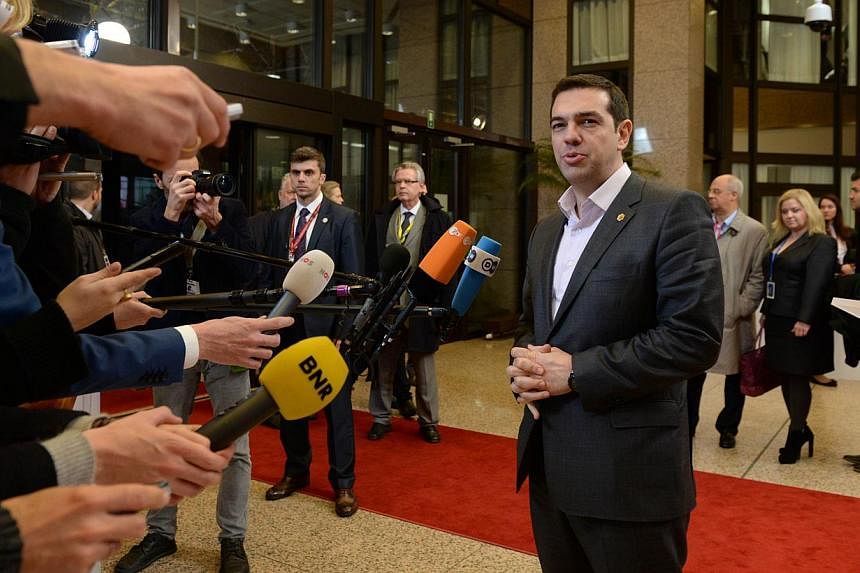BRUSSELS (AFP) - Greece agreed on Friday to give creditors a new list of reforms to get its bailout back on track after Prime Minister Alexis Tsipras held crunch talks with European leaders.
They agreed to finish work "as fast as possible" on completing Greece's EU-IMF rescue programme, a statement said, to free up crucial funds to help Athens avoid bankruptcy and a catastrophic exit from the euro.
The radical left-wing Greek leader sat down for a three-hour meeting with German Chancellor Angela Merkel, French President Francois Hollande and the EU's top officials on the sidelines of a summit in Brussels. "We have put the process back on track," a tired-looking Tsipras told reporters after the talks. Merkel - who as leader of Europe's biggest economy has led efforts to make Greece honour its commitments - said she and Hollande were "fully in line" with the agreement.
"The Greek prime minister declared that he is willing to present such a list and that he will do so quickly," she told a press conference.
Greece's creditors agreed in February to extend its €240-billion (S$332 billion) bailout in exchange for promises of austerity reforms by Tsipras's new hard-left government.
Athens wants the final €7-billion tranche of the money to be paid out now to stay afloat, but Brussels wants more evidence of its commitment to the reforms.
Time was running out for Athens as Friday brings a key debt deadline when Greece must pay €300 million to the IMF and redeem €1.6 billion in treasury bills. "Greek authorities will have the ownership of the reforms and will present a full list of specific reforms in the next days," said the statement issued after the talks.
Hollande urged Greece "to be more precise in its reform proposals and introduce them faster than planned."
Technical talks in Athens and Brussels which had largely stalled over the seemingly insurmountable differences between the two sides will continue as before, the statement added.
The deal is the latest in a series aimed at narrowing differences between the new Greek government, with its desire to cast aside the shackles of austerity under two previous bailouts, and sceptical creditors.
European alarm and frustration mounted after the Greek parliament adopted a crisis Bill aimed at helping the poor on Wednesday, which lenders say violated its commitments to creditors. Tsipras warned earlier that Greece faced a "humanitarian crisis" if it did not get some of the cash it says is owed to it under the bailout programme that started in 2012.

